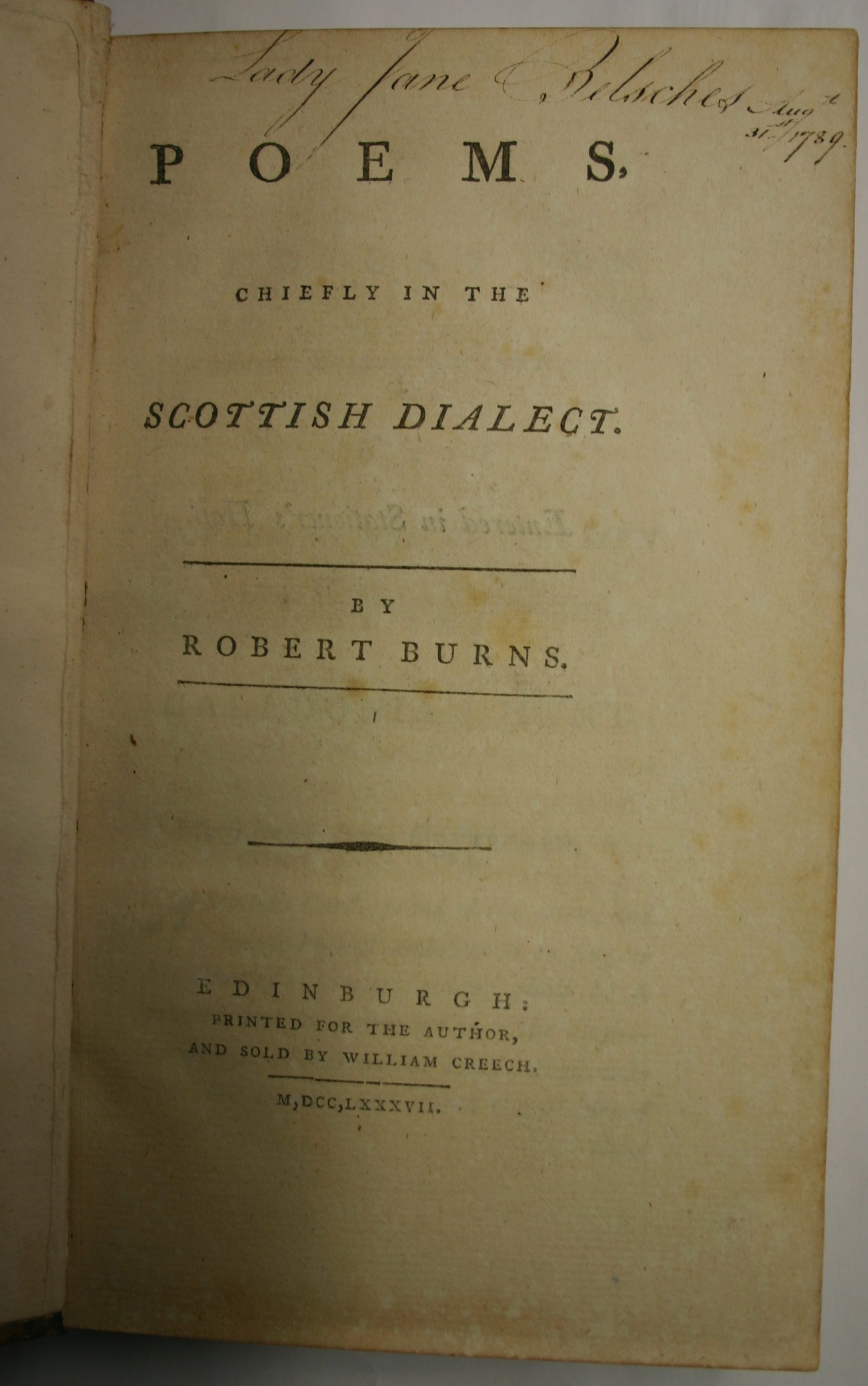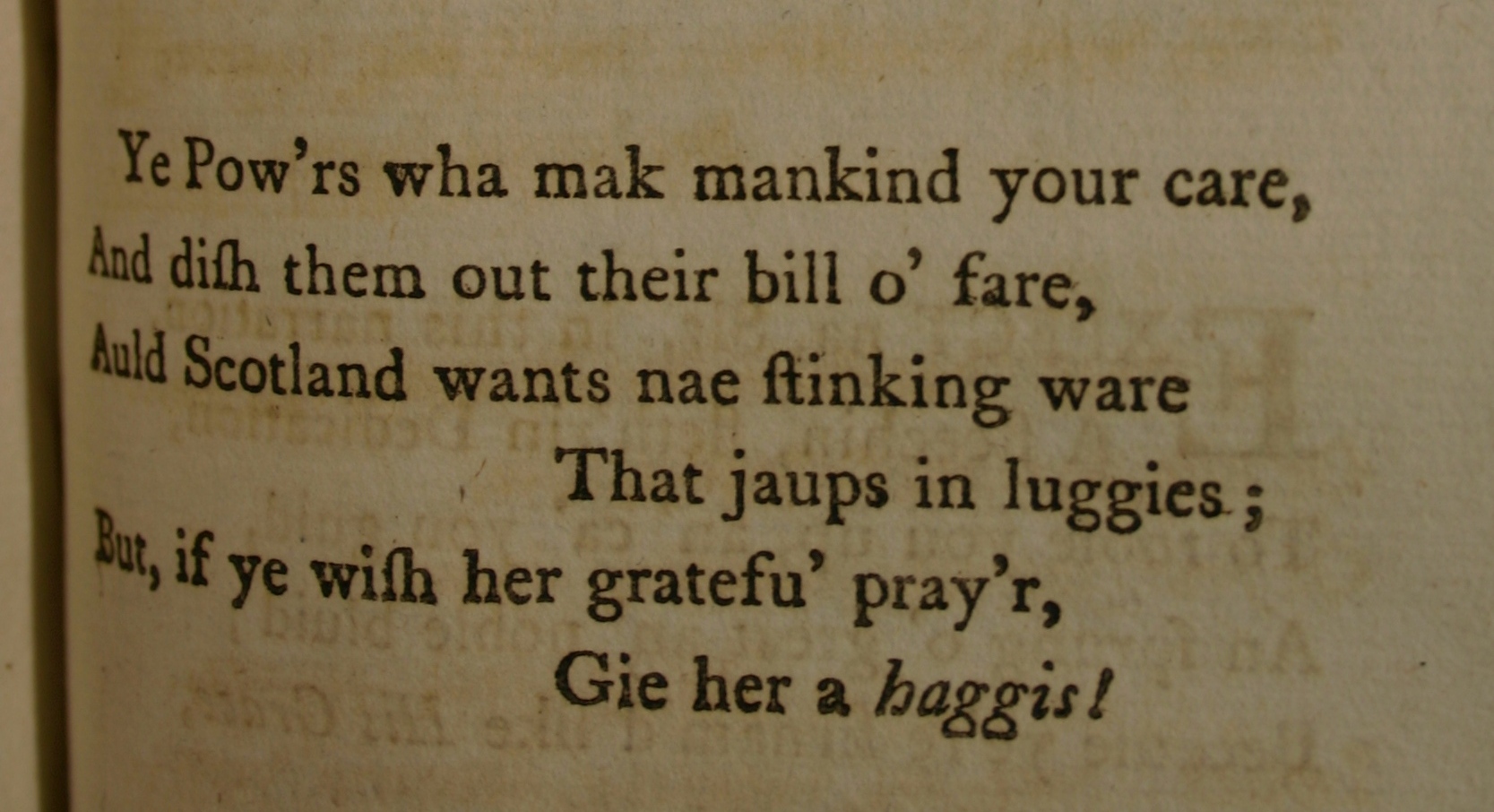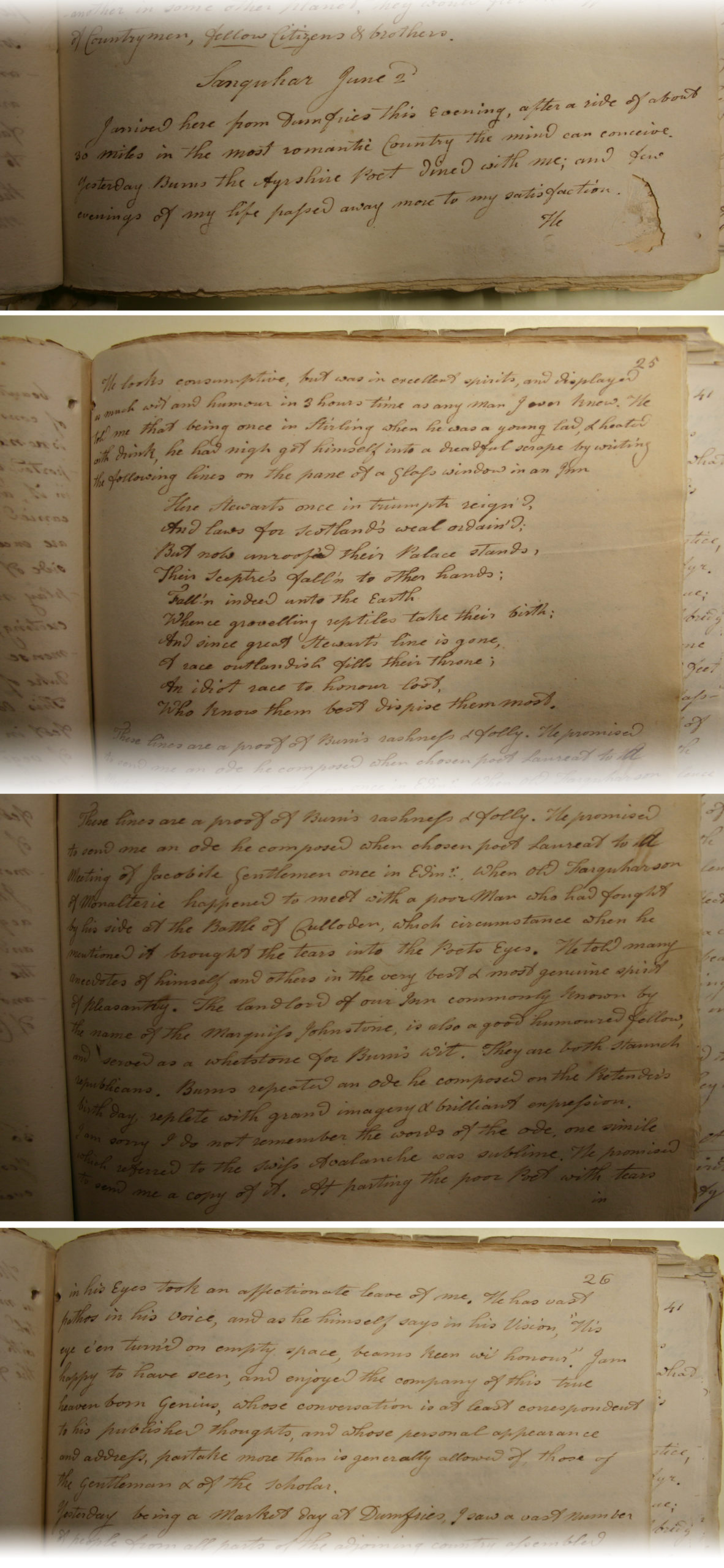Robert Burns Night
People in Scotland, and all around the world, will be cutting into a haggis today or lifting a wee dram to the memory of Robert Burns, our national poet.

Like many Scottish libraries, St Andrews has many editions of Burns’s works. One of the more curious items is the 1787 2nd Edinburgh edition of Poems, chiefly in the Scottish dialect, known as the ‘stinking’ edition. This edition was printed by William Creech, who is notorious for giving Burns trouble, Burns’s Edinburgh publisher. This edition is known as the ‘stinking’ edition because of a typographical error on page 263, the last lines of ‘Address to a haggis’, in which “skinking” has been replaced with “stinking”:
“… Ye Pow’rs, wha mak mankind your care,
And dish them out their bill o’ fare,
Auld Scotland wants nae stinking ware
That jaups in luggies;
But, if ye wish her gratefu’ prayer
Gie her a haggis!”
(from the poem ‘Address to a haggis’ by Robert Burns)

In the Playfair collection, a collection of personal papers relating to the Playfair family, a prominent family in St Andrews and beyond, particularly during the 19th century, we find reference to Burns. This item is from the travel journal of James Macdonald of Anstruther Wester, who travelled in Scotland and Europe in the late 18th century. He married Jessie Playfair, 3rd daughter of Rev James Playfair, Principal of the United College from 1799-1819 (a marriage opposed by her father due to Macdonald’s radical ideas). This entry is from Macdonald’s Scottish tour from between 24 May and 25 July 1796, during which he dined with Burns on 1 June 1796 (a month and-a-half before Burns died). This record forms the last extended account of Burns’s conversation written down in his lifetime and an important insight into his republican Scottish Political thought. During this dinner Burns recounts the night he composed ‘Lines on Stirling‘ on a window pane in a local pub in Stirling. A transcription of the entry follows the images:

Here Stewarts once in triumph reign’d,
And laws for Scotland’s weal ordain’d;
But now unroof’d their Palace stands,
Their sceptre’s fall’n to other hands;
Fall’n indeed unto the Earth.
Whence grovelling reptiles take their birth;
And since great Stewart’s line is gone,
A race outlandish fills their throne;
An idiot race to honour lost,
Who know them best dispise them most.
These lines are a proof of Burns’ rashness & folly. He promised to send me an ode he composed when chosen poet Laureat to a meeting of Jacobite gentlemen once in Edin[burgh]. When Old Farquharson of Monalterie happened to meet with a poor man who had fought by his side at the Battle of Culloden, which circumstance when he mentioned it brought the tears into the Poets eyes. He told me many anecdotes of himself and others in the very best & most genuine spirit of pleasantry. The landlord of our Inn commonly known by the name of the Marquiss Johnstone, is also a good humoured fellow and served as a whetstone for Burns’ wit. they are both staunch republicans. Burns repeated an ode he composed on the Pretender’s birth day, replete with grand imagery & brilliant expression. I am sorry I do not remember the words of the ode, one simile which referred to the Swiss Avalanche was sublime. He promised to send me a copy of it. At parting the poor Poet with tears in his eyes took an affectionate leave of me. He has vast pathos in his voice, and as he himself says in his Vision, “His eye e’en turn’d on empty space, beams keen wi’ honour”. I am happy to have seen, and enjoyed the company of this true heaven born genius, whose conversation is at least correspondent to his published thoughts, and whose personal appearance and address, partake more than is generally allowed of those of the gentleman & of the scholar.”